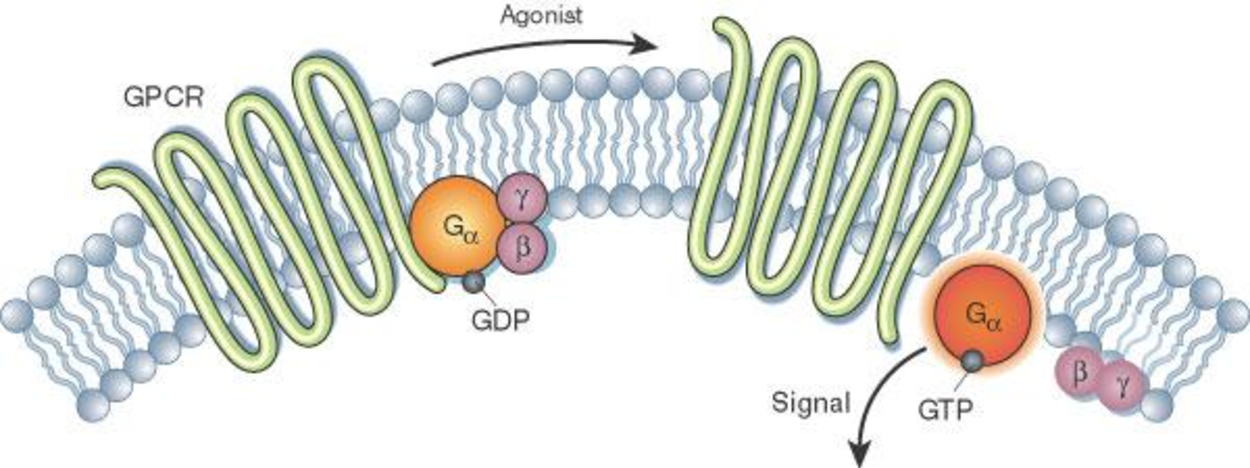G protein-coupled receptors (GPCRs) represent one of the largest and most diverse families of cell surface receptors, playing a critical role in cellular communication and mediating a wide range of physiological processes. Given their fundamental importance in biology and their potential as therapeutic targets, the GPCR Targeted Library offers a comprehensive collection of compounds specifically designed to modulate GPCR activity. In this article, we delve into the world of GPCRs, highlight their significance in cellular signaling, and discuss the impact of the GPCR Targeted Library on drug discovery and therapeutic development.
Unveiling the Role of GPCRs in Cellular Signaling:
GPCRs play a vital role in transmitting signals from the extracellular environment to the interior of cells. Upon ligand binding, GPCRs activate intracellular signaling pathways through interaction with G proteins, ultimately leading to the regulation of diverse cellular processes. These receptor-mediated processes include neurotransmission, hormone secretion, immune response modulation, and regulation of cardiovascular and metabolic functions. Understanding the intricate signaling cascades initiated by GPCRs provides insights into disease mechanisms and opens up avenues for therapeutic intervention.
The GPCR Targeted Library:
2.1. GPCR Agonists:
The GPCR Targeted Library includes a diverse collection of agonists that selectively activate specific GPCRs. Researchers can utilize these compounds to investigate GPCR signaling mechanisms and explore the functional consequences of GPCR activation in cellular and animal models. GPCR agonists also serve as valuable tools for studying downstream signaling pathways and identifying potential therapeutic targets.
2.2. GPCR Antagonists:
Antagonists in the GPCR Targeted Library bind to GPCRs but do not activate them, thus blocking the binding of endogenous agonists. By inhibiting GPCR activity, these compounds provide insights into receptor function and can be utilized to study the physiological and pathological roles of specific GPCRs. GPCR antagonists have extensive therapeutic potential for a myriad of conditions, such as hypertension, pain management, and psychiatric disorders.
2.3. GPCR Modulators:
The GPCR Targeted Library also encompasses a range of modulators that exert allosteric or biased effects on GPCR function. Allosteric modulators bind to distinct sites on GPCRs, altering receptor conformation and modulating ligand binding or signaling. Biased modulators selectively activate specific signaling pathways downstream of GPCRs, offering more precise therapeutic interventions. These modulators enable researchers to unravel the complexities of GPCR signaling and design tailored interventions with enhanced selectivity and efficacy.
Accelerating Drug Discovery and Therapeutic Development:
The GPCR Targeted Library significantly accelerates drug discovery efforts by providing researchers with a diverse collection of compounds that modulate GPCR activity. By screening this library, researchers can identify lead compounds, study structure-activity relationships, optimize pharmacokinetic properties, and evaluate potential therapeutic efficacy. The library’s resources facilitate the discovery of novel therapeutics that modulate GPCR signaling for a wide range of diseases, including neurological disorders, cardiovascular diseases, and metabolic disorders.
Expanding Horizons in GPCR Research:
GPCRs continue to be a target of significant interest in pharmaceutical research and development. The GPCR Targeted Library acts as a catalyst for expanding our understanding of GPCR biology and harnessing their therapeutic potential. By investigating the vast array of compounds within the library, researchers can dissect the intricate signaling pathways associated with GPCRs, identify novel drug targets, and develop innovative therapeutic interventions tailored to specific GPCR subtypes.
Conclusion:
The GPCR Targeted Library represents a valuable resource for researchers dedicated to unraveling the complexities of GPCR signaling and advancing therapeutic interventions. With its comprehensive collection of agonists, antagonists, and modulators, the library provides a toolkit to study GPCR biology and develop novel therapeutics. Leveraging the insights gained from the library, we can unlock the full potential of GPCRs as therapeutic targets, leading to transformative advances in medicine and improving patient outcomes across various disease areas.




